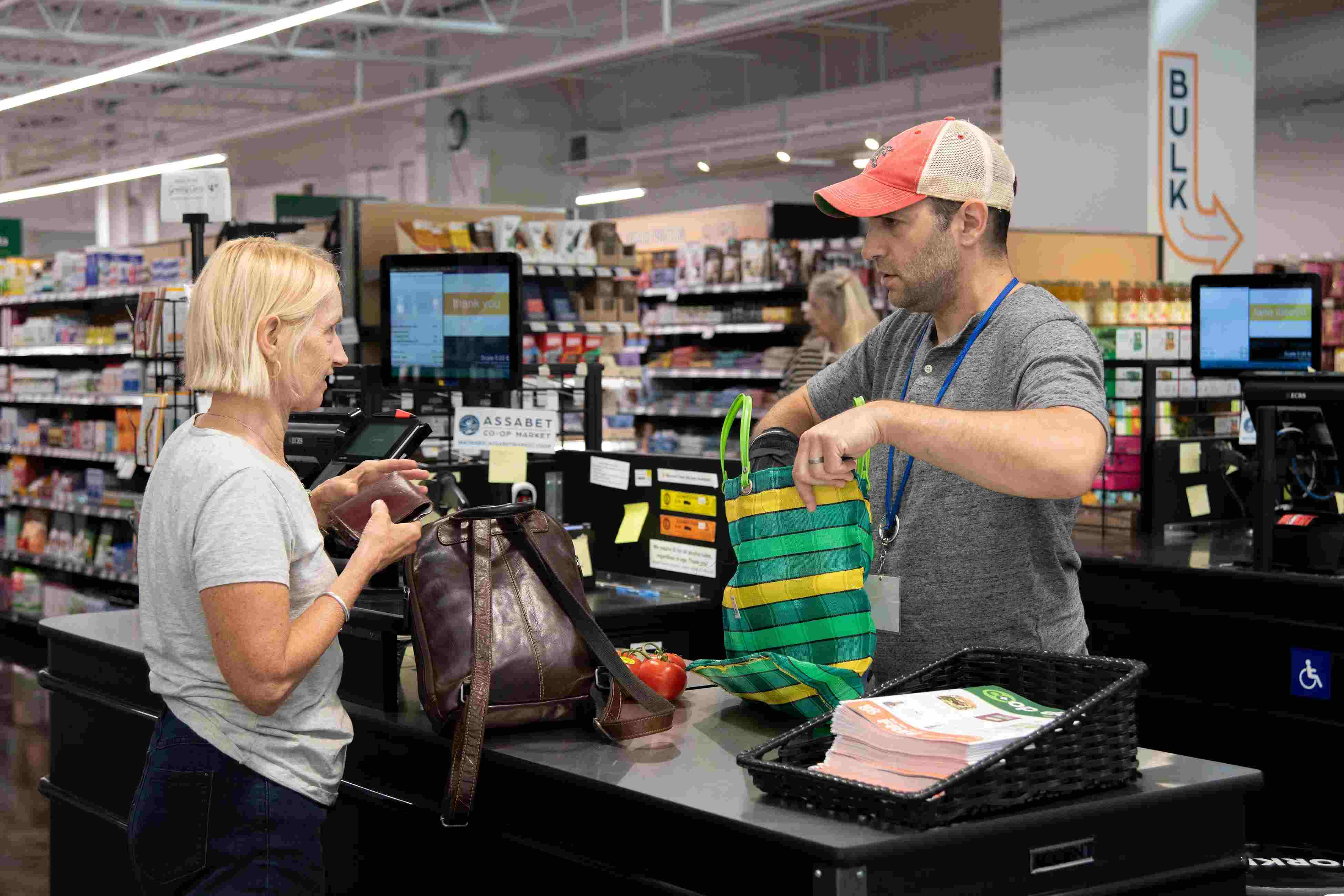Food & Agriculture
Innovating on Shared DNA

We’re launching a new program with the Assabet Co-op Market in Maynard, MA that builds on a long history of alignment between financial institutions, cooperatives, and agriculture.
At Walden Mutual, our mission is rooted in the intersection of three big ideas:
- Developing a model for using money to generate a greater common good
- Using cooperative principles (embedded in our mutual structure) to ensure the model is preserved over the long-term
- Focusing the impact (the “greater common good”) on our local food ecosystem.
At first glance, that combination feels new – but in actuality, it’s far from it. Each thread independently, as well as in relationship with each other, has roots that go back a century or more.
Take the first two: using money to generate a greater common good, and the utilization of cooperative principles. In the late 1800s, Edward Filene — of women’s fashion fame — was interested in embedding his progressive ideals in the structures of business. He started with innovative labor practices - profit sharing, living wages, and employee unions – before discovering agricultural cooperative banks in India ona trip in 1907. Upon his return, Filene advocated (to his friend Franklin Roosevelt) for similar models in the U.S. – what he called “credit unions”. By 1934, he was thanked by name in the founding bylaws of the Credit Union National Association.
Meanwhile, agriculture and cooperative structures were already intertwined in the U.S. The Grange, founded after the Civil War, worked to improve farming conditions by eliminating middlemen, connecting farmers and manufacturers directly. By 1875, they’d adopted the Rochdale Principles — pillars that continue to guide cooperatives today. The Grange’s success laid the foundation for the eventual formation of hundreds of other agricultural marketing and purchasing cooperatives in the ensuing period. By the 1960s and 70s, the same principles were adopted by members of the counter cultural food movement, creating food co-ops as alternatives to the industrial food system—places to buy natural goods, build community, and reimagine food sourcing.
The combination of these seemingly disparate concepts – using money for a greater common good, the incorporation of cooperative principles, a focus on food systems change – have a long history of sitting side by side. Together, they provide foundation for our connection to food cooperatives across the region. Today, we’re thrilled to partner with the Assabet Co-op Market in Maynard, MA — another community-rooted organization that launched in 2023, just like Walden.
Assabet offers the staples you'd expect from a local food co-op — locally sourced and sustainably produced food — but they’re aiming higher. As their General Manager Sam McCormick puts it, they’re “building toward a future where Assabet is not just a retail store, but a vibrant community hub and a model for sustainable, just food systems.”
That kind of growth requires capital that’s flexible and mission-aligned. Together, we’ve designed an innovative new lending program to meet that need:
- Walden Mutual is providing a $1 million line of credit to support Assabet’s next phase of growth.
- Supporters of Assabet’s mission canparticipate by opening a 12-month Local Impact Certificate of Deposit (CD) and pledging it as collateral. The funds remain theirs, but serve as a guarantee for the line of credit.
- The pledged CDs enable us to offer better rates to Assabet. In return, CD holders receive a higher interest rate (4.00% APY vs. 3.60% on our standard 12-month CD).
- Assabet can borrow up to the amount pledged—so if $500,000 is pledged, that amount becomes available; if we reach $1 million, the full line of credit is activated.
This partnership is about more than capital. It’s about shared values and mutual understanding. As Sam says, “Walden aligns seamlessly with Assabet’s mission and values. As a mutual bank rooted in community investment and sustainable agriculture, they share our commitment to building a just and resilient regional food system… They’re different because they understand the unique challenges of the food system and the need for a flexible, mission-aligned financial model.”



